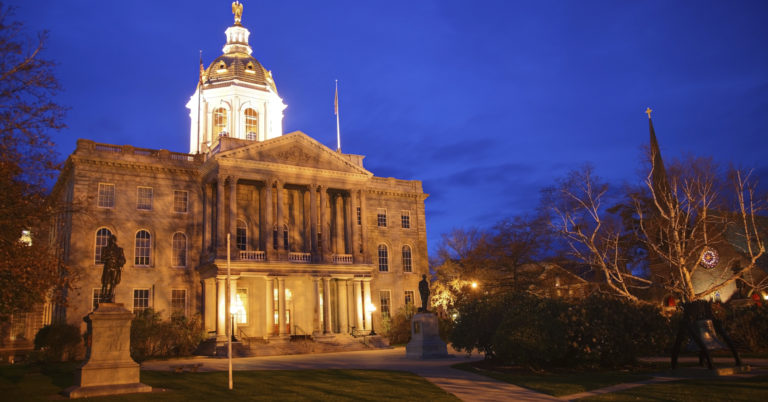
Ideal Tax System Doesn’t Play Favorites and Doesn’t Punish Citizens
By Greg Moore
In a recent Monitor op-ed, Paul A. Levy does his best to make the case that a strong central government powered by high taxes is the best way to promote the general social welfare. It’s a veritable paean to higher taxes, complete with a list of seven ways to think about taxes that are so lofty they’d make a hardcore socialist blush.
Alas, his “visions of taxation” run counter to everything we know about economics, government, and, more importantly, human nature. And it’s clear that motivating the “tax-more” crowd is the fundamental belief that the government needs your money more than you do and can spend it more wisely than you can.
Indeed, running through Levy’s essay is the assumption that government is capable of deliberately arranging human interactions in a way that maximizes social welfare. The famous economist Frederick Hayek called this idea the “fatal conceit” and warned it led not to greater overall wealth, but greater overall misery.
A better tax system would have a broad base with few exemptions or deductions and rates just high enough to fund only the government’s legitimate core functions. Such a system would be fairer for everyone and bring us closer to a society based on mutual benefit and creating value for others.
When people are free to save, spend or invest as they see fit, everyone benefits. If Levy is serious about community, that is how to foster it.
But where Mr. Levy perhaps goes most wrong is his contention that government is “the prime leveler of a very slanted playing field.” On the contrary, government is the primary force slanting the playing field – fueled by high taxes.
Through subsidies and tax giveaways, government routinely picks winners and losers in the economy, and the winners are almost always the powerful, well-connected, or politically favored. It’s what you get with higher taxes and more government.
In such a rigged system, success is determined not by who can provide the best product or service for customers, but by who can get the right politician’s ear.
Levy sees the combination of cronyist corporations and big government as “vital” to saving capitalism. Actually, what he’s talking about isn’t capitalism at all. And I can’t think of a more pernicious combination.
The late economist James Buchanan, whom Levy slams, won a Nobel Prize in 1986 for his public choice theory, which postulates that politicians will act in their own interests over the public interest.
Do we really want self-interested politicians acting in concert with their well-connected allies to take an ever-larger role in managing our economy, or are we the people better equipped to do that by making our own decisions with what to do with the fruits of our labor?
If you look at the most corrupt places on earth, the one thing they have in common is a strong central government with a large role in controlling the economy.
Politics, not economics, concentrates wealth and power. Mr. Levy’s prescription — higher taxes and more government control over the economy and our lives — would make that problem worse.
After years of being told we had entered an era of “secular stagnation” and America was incapable of strong economic growth, things have turned around, dramatically so. Growth is at a 3.2% annualized rate, inflation is under control, interest rates remain low, productivity is high, and wages – particularly at the low end of the scale – are growing fast.
No one should think it’s an accident that the economy has accelerated beyond expectations after a policy shift away from high taxes and the heavy hand of government to low taxes and a lighter touch.
We have seen similar results right here in New Hampshire. In 2015, then-Gov. Maggie Hassan signed into law two rounds of tax cuts, and in 2017, Gov. Chris Sununu followed this up with two additional tax cuts of his own.
Opponents claimed these reductions would blow up the deficit while helping only the wealthiest citizens. Contrary to these claims, the results speak for themselves.
These tax cuts fueled business growth and, therefore, job growth. The unemployment rate, which hovered from 6.5% to 4.7% from 2009 to 2014, tumbled to 2.4% in March 2019. Using data from 2015 to 2018, US News It’s why we were experienced such strong economic growth throughout much of 2018. The much-hyped budget-blowout never materialized, and state revenue is up.
Our state’s remarkable job growth shows that when we lower taxes and reduce corporate welfare, innovators and job creators expand the economy and create more opportunity. Mr. Levy’s vision of “big markets and big government” teaming up is the wrong path for New Hampshire.
